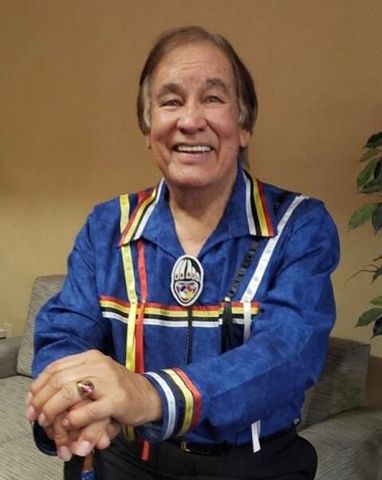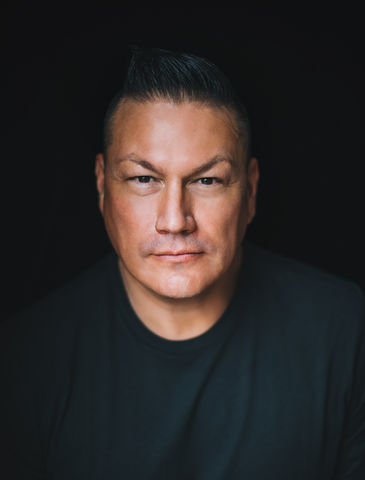$30 adults | $25 seniors and students (with ID) | $20 youths
FREE for children ages 5 and under, Registration Required
This November, we are celebrating the traditions, languages, contributions and stories of Native American, Alaska Native, Native Hawaiian, and affiliated Island communities as part of National Native American Heritage Month. Join us for a special screening of the 1983 Disney film Running Brave, the true story of Billy Mills, a young Oglala Sioux man who won the gold medal in the 10,000-meter run at the 1964 Tokyo Olympics. Following the screening, join Mills for an exclusive talk about his storied life and career moderated by Gary “Litefoot” Davis. Davis is a rapper, actor, businessman, and member of the Cherokee Nation, well known for his portrayal of Little Bear in the 1995 film, The Indian in the Cupboard.
Please note: The film Running Brave (1983) contains a brief instance of partial nudity.
On-Sale Information
Tickets for Screening + Talk | Running Brave with Olympian Billy Mills are available as follows:
- Walt’s Circle Donors: Purchase tickets beginning Tuesday, October 8 at noon by emailing membership@wdfmuseum.org.
- Founding, Supporter, and Friend-level members: Purchase tickets beginning Wednesday, October 9 at noon by emailing membership@wdfmuseum.org.
- All member levels: Purchase tickets online beginning Thursday, October 10 at noon via the Member Portal.
- Public (non-members): Remaining tickets available online beginning Friday, October 11 at noon.
Upgrade your membership to receive priority access to purchase tickets. Membership dues and Walt's Circle donations may be paid as monthly installments or as a one-time annual payment. For more information, please email the Membership Department at membership@wdfmuseum.org.
About the Speakers

Billy Mills
Billy Mills (born June 30, 1938) is a member of the Oglala Lakota Tribal Nation and is also known by his Lakota name TAMAKOCE TE’HILA, which translates to “Loves His Country” or more traditionally “Respects the Earth”.
He is an Olympic gold medalist in the 10,000-meter run at the 1964 Tokyo Olympic Games. His Olympic victory is considered one of the greatest sports moments of all time. He remains the only athlete from the Western Hemisphere to win the Olympic 10,000-meter race.
Mills was orphaned at an early age; his mother joining their ancestors when he was eight years old and his father when he was 12 years old.
Before his father passed, he told Mills, “You have broken wings, son, and it takes a dream to heal. Find your dream and it will take you down a path introducing you to your passions in life. Find your passion, develop your skills to equal your passion, and magic can happen! One or more of the magical things you do in life just may be looked upon as a miracle, son.”
Inspired by his father’s teachings, Mills’ life is based upon dreams and the resilience of his ancestors. His Great-grandfather, BB Mills—an Englishman—was requested by Chief Red Cloud to become the first Indian agent at the Red Cloud agency, which is today the Oglala Lakota Tribal Nations’ headquarters. The US Government refused this request, claiming that because BB Mills spoke fluent Lakota, is married to a Lakota woman, and had five Lakota children, it would be hard to strip the children of everything Lakota to save the child. Shortly afterwards, BB Mills died.
When Crazy Horse surrendered in 1875, riding into Fort Robinson with him were his warriors, the elderly men, women, and children, followed by their supply train. Walking with them was Sally Bush Mills—Billy’s great grandmother—and her five children. One of those children was Ben Mills, Billy’s grandfather.
Their resilience and their footprints are present in Mills’ journey today as National Spokesperson for Running Strong for American Indian Youth, which Mills co-founded in 1986.

Gary "Litefoot" Davis
Gary "Litefoot" Davis is an enrolled member of the Cherokee Nation of Oklahoma. He has long been a pioneering force in the indigenous community, boasting a multi-faceted career that seamlessly bridges arts, entertainment, and sophisticated business acumen. Over the years, he has gracefully transitioned from a notable figure in arts and entertainment to an accomplished business leader, before cementing his legacy as an organizational trailblazer.
Davis has earned considerable achievements in music, film and television with eight award-winning albums, and award-winning starring roles in such films as, The Indian in The Cupboard (1995) and television programs such as Spirit Rangers (2022) and House of Cards (2013) and numerous inspirational concert tours that have taken him to nearly every tribal nation in the United States. Along with his wife Carmen Davis, he founded IndigiStudios, a 100% owned and operated indigenous film and production company, focused on a slate of theatrical, episodic, and documentary projects, all centered around the company's mission of reclaiming the indigenous narrative in film and television.
Davis, widely known as the first Native American rap artist, launched his musical career in 1992, pioneering a unique brand of indigenous rap under his own record label, Red Vinyl Records. His music, marked by albums like Seein' Red (1994), Good Day to Die (1996), and The Life & Times (1998), has won numerous accolades including multiple Native American Music Awards for Artist of the Year and Best Rap/Hip Hop Album. Throughout his career, Davis has not only redefined indigenous representation in the music industry but has also fostered the careers of other indigenous artists, cementing his legacy as a trusted advisor and mentor.
Davis is a recipient of the prestigious Sevenstar Award from the Cherokee Nation Historical Society and received the Department of Commerce Minority Business Development Agency National Director Special Recognition Award in 2015. Davis was also recognized by Scholastic Books in their publication Native American Heroes in 2019.
He has twice testified before the U.S. Senate and is astute at policy matters related to Indian Country. He has also twice been appointed an ambassador for the U.S. Department of Energy's Minorities in Energy (2015) and Equity in Energy (2020) initiatives and was appointed to the U.S. Small Business Administration's Council on Underserved Communities (2016).
Davis serves as a successful example of the possibilities that exist for anyone who recognizes their worth, refuses to be defined by the limitations of others and relentlessly pursues their goals until they have achieved their highest aspirations.
